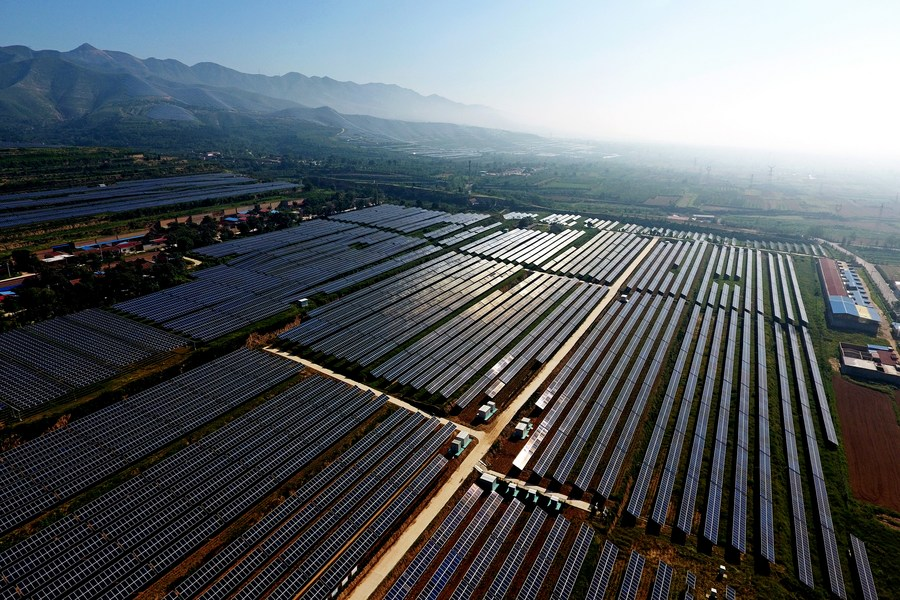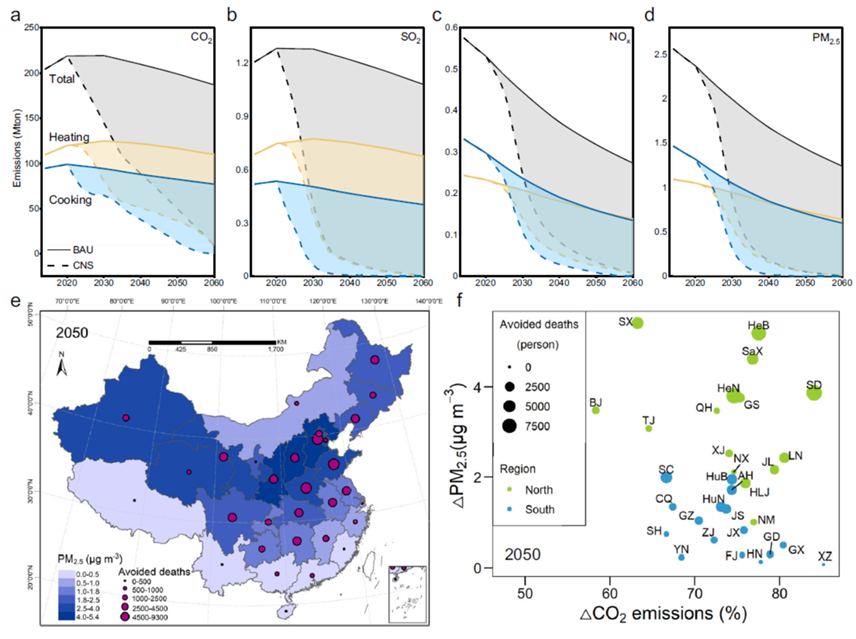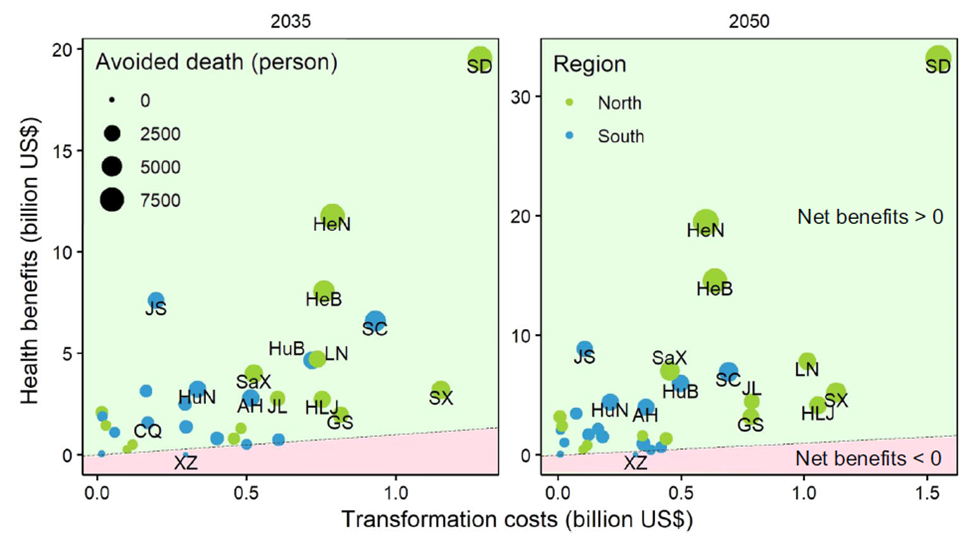Photo taken on Aug. 29, 2019 shows an aerial view of a photovoltaic power station in Ruicheng County, north China's Shanxi Province. (Xinhua/Zhan Yan)
Peking University, November 9, 2023: Energy transition in rural residential areas is critical in China’s efforts to achieve carbon neutrality by 2060, with monetized health benefits projected to offset costs in most provinces, a recent study by Peking University finds.
Rural residential energy contributed to 42% of the national total residential energy-related carbon emissions in China in 2017. A transition towards contemporary energy is thus in line with the UN Sustainable Development Goals (SDGs) as well as China’s pledge to be carbon neutral by 2060.
Changes in emissions from rural cooking and heating nationwide in carbon neutrality scenario (CNS) and baseline scenario (BaU)
Exploring energy transition pathways at the provincial level, a research team from the Laboratory of Energy & Environmental Economics and Policy (LEEEP) by PKU College of Environmental Sciences and Engineering, along with its partners, constructed an integrated energy-air quality-health modeling framework. This framework, created based on the Integrated Model of Energy-Environment-Economy for Sustainable Development (IMED), models the effects of decarbonizing rural cooking and heating on contemporary energy consumption and air quality in rural areas.
Rural cooking and heating transformation costs and monetized health benefits related to avoided PM2.5-associated premature deaths in 2035 and 2050
Key findings from the study point to a remarkable improvement in air quality in northern China by 2050, which could reduce up to 75,500 PM2.5-associated premature deaths nationwide. Notably, the monetized health benefits of using contemporary energy are projected to offset costs in most provinces. Energy transition is also expected to reduce energy poverty for rural communities.
This study, titled “Costs and health benefits of the rural energy transition to carbon neutrality in China,” was published in Nature Communications. With the integration of national rural residential energy-related statistics into the IMED model, the study is expected to provide insights and theoretical support for further analysis of provincial-level pathways towards energy transition in rural areas.
Written by: Sun Fanshu
Edited by: Wu Jiayun
Source: College of Environmental Sciences and Engineering


